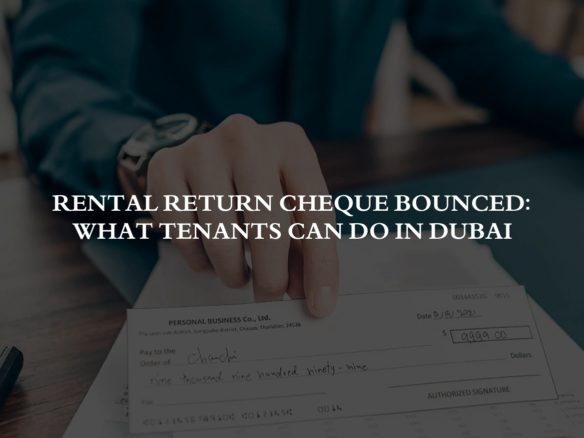Table of Contents
Dubai and the UAE are often surrounded by myths and misconceptions about there Laws, especially when it comes to UAE and Dubai laws about drinking alcohol, public displays of affection, and dress codes. As a predominantly Muslim nation, it’s easy to assume that the rules here are strict and rigid. However, the reality for expats, especially wealthy ones, is quite different. Let’s dive into the truth behind these myths and what it’s really like living in Dubai and the UAE.
Understanding Dubai Laws about Financial Rights and Protections

Financial Security for Expats
Dubai and the UAE have evolved significantly in terms of financial protections. Today, if someone tries to scam you, whether it’s selling you a faulty car or a deceptive property deal, you have strong legal recourse. You can report these incidents to the police, present your evidence, and expect the Dubai law to be on your side. This shift ensures that the influx of wealthy expats is safeguarded, reinforcing the city’s reputation as a safe investment hub.
Employer and Employee Rights
Gone are the days when employers could exploit their workers with impunity. Now, both employer and employee rights are strictly enforced. Employers can no longer confiscate passports or impose unfair working conditions. The legal system here provides robust protections for all parties, ensuring a fair and just working environment.
Dress Code in Dubai Laws: Myth vs. Reality

Government Offices and Religious Sites
When visiting government offices or religious sites like mosques, dressing conservatively is necessary. This means wearing long pants, jeans, and a proper shirt. It’s a sign of respect and aligns with local customs.
Everyday Attire in Public Spaces
Contrary to popular belief, you can wear almost anything in public spaces. On beaches, women can wear bikinis, and men can be shirtless. Even in areas like Dubai Marina, casual attire like shorts and tank tops are acceptable. However, in places with a high concentration of locals, such as Dubai Mall, it’s wise to dress more modestly to avoid drawing unnecessary attention.
Public Displays of Affection: What’s Allowed?

Moderate Displays of Affection
You can hold hands, hug, and give your partner a quick kiss without fearing legal repercussions. The key is moderation. Avoid overly passionate displays, especially in front of locals or in government buildings.
Respecting Local Sensibilities
While locals understand that expats have different cultural norms, it’s essential to be respectful. Publicly making out or being overly affectionate can lead to uncomfortable situations or even complaints.
Alcohol Consumption: Navigating the Rules

Obtaining Alcohol License
Alcohol is readily available but regulated. As a resident, you can get an alcohol license for a nominal fee, while tourists can purchase alcohol from licensed shops and establishments like bars, clubs, and restaurants.
Drinking Responsibly
While drinking alcohol is permitted, doing so responsibly is crucial. Public intoxication, drinking in unauthorized places, and driving under the influence are strictly prohibited and can result in severe penalties, including imprisonment and deportation.
Special Considerations During Ramadan

Observing Ramadan
During Ramadan, the holy month, it’s important to be particularly respectful of local customs. This means not eating, drinking, or smoking in public during daylight hours. However, you can still enjoy these activities privately.
Dressing During Ramadan
Women do not need to cover up more than usual during Ramadan, and normal dress codes apply. However, a bit of extra modesty can go a long way in showing respect for the local culture.
The Reality of LGBTQ+ Rights

Restrictions on LGBTQ+ Expression
The UAE is not LGBTQ+ friendly. Public expression of LGBTQ+ identity, including cross-dressing or transgender activities, is not tolerated and can lead to severe legal consequences. If you identify as LGBTQ+, it’s important to be aware of these restrictions.
Navigating Legal Protections
Consumer Protection UAE and Dubai Laws
Consumer rights in Dubai are well-protected. Whether it’s a faulty product or a service not delivered as promised, you can seek redress through various legal avenues. The government has set up multiple channels to report and resolve consumer complaints efficiently.
Real Estate Protections
The real estate market is also tightly regulated. Developers are required to adhere to strict guidelines, and any breach of contract can be legally challenged. This provides a secure environment for expats investing in property.
Living the Expat Life in Dubai

Embracing the Culture
Living in Dubai offers a unique blend of modernity and tradition. While it’s crucial to respect local customs, the city is very accommodating to expats, offering a cosmopolitan lifestyle with a wide array of cultural experiences.
Building a Community
Dubai’s expat community is large and diverse. Joining social clubs, engaging in community events, and exploring the city’s many attractions can help you build a supportive network and make the most of your expat experience.
Conclusion
Living in Dubai and the UAE can be a rewarding experience, especially for wealthy expats looking to enjoy a tax-free, luxurious lifestyle. While respecting local customs and laws is essential, many of the stringent rules people fear are either myths or only applicable in specific contexts. By understanding and navigating these laws, you can fully enjoy everything this vibrant city has to offer.
FAQs
1. Can I drink alcohol in Dubai?
Yes, you can drink alcohol in Dubai. You can purchase it from licensed shops, bars, clubs, and restaurants. Just remember to drink responsibly and avoid public intoxication.
2. Is public affection allowed in Dubai?
Moderate public displays of affection, like holding hands and brief kisses, are generally accepted. However, avoid overly passionate displays, especially in front of locals or in government buildings.
3. What is the dress code for tourists in Dubai?
Tourists can dress casually in most areas. Swimwear is acceptable on beaches, and casual attire is fine in many public spaces. However, dress conservatively when visiting government offices or religious sites.
4. Are there any special rules during Ramadan?
During Ramadan, it’s important to respect local customs by not eating, drinking, or smoking in public during daylight hours. However, you can still do these activities in private.
5. What legal protections do expats have in Dubai?
Expats have robust legal protections in Dubai, covering everything from financial scams to consumer rights and employment Dubai laws. The legal system is designed to protect both residents and visitors.





Join The Discussion